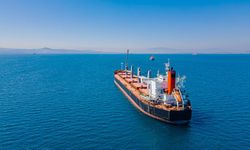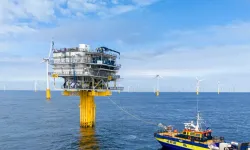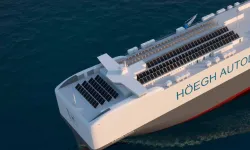Recent assaults on container vessels have compelled numerous companies to suspend their commercial routes through the Red Sea, casting a shadow over one of the world's crucial maritime trade pathways.
Last year, the Red Sea and the Suez Canal saw over 200 container ships navigating the route between January 4th and 11th. However, the impact of the conflict is vividly illustrated on this year's map, revealing that only 122 vessels dared to make the journey during the same week in 2024.

Since its inauguration in 1869, the Suez Canal has been a transformative conduit for trade between Asia, Europe, and the Middle East. However, the current conflict poses a serious threat to this critical waterway, heightening concerns about the stability of global trade routes.
The Suez Canal, a 193.30-kilometer-long artificial sea-level waterway in Egypt, connects the Mediterranean Sea to the Red Sea, serving as a vital trade route between Europe and Asia. Notably, the Cape of Good Hope also plays a crucial role for vessels sailing to East Asia and Australia, with several South African ports, including the largest, the port of Cape Town, situated near the Cape.
In Washington DC, responding to inquiries, President Biden acknowledged that the recent strikes have not succeeded in halting Houthi activities. When questioned about the effectiveness of the attacks, he commented, "Well, when you say working, are they stopping the Houthis? No.
Are they gonna continue? Yes." The international community is closely monitoring the situation, recognizing the urgent need for diplomatic solutions to safeguard the stability of these vital trade routes.






